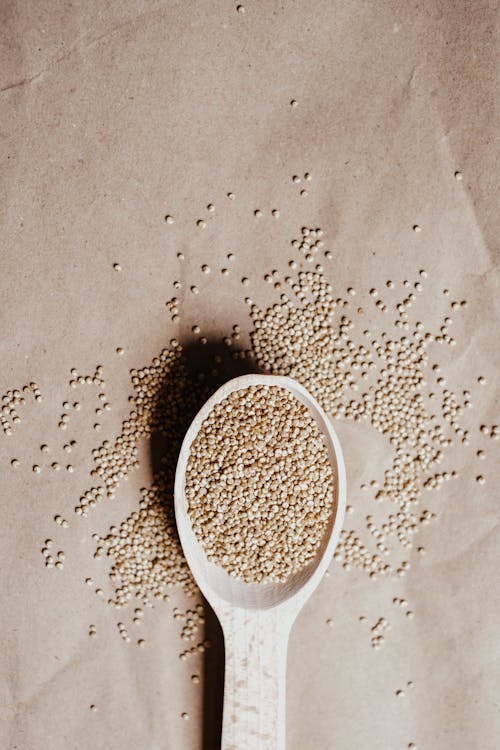With the right knowledge and a well-planned gestational diabetes diet, you can switch to this phase with ease, both for yourself and your unborn baby.
One of the most effective ways to control diabetes during pregnancy is through a well-balanced and nutritious diet.
Everything about a healthy gestational diet and how gestational diabetes mellitus (GDM) occurs will be explained in this article. Now, let’s discuss what gestational diabetes is.
Meaning of Gestational Diabetes
Gestational diabetes occurs when a hormone made by the placenta impairs the body’s ability to produce or utilize insulin effectively, resulting in higher-than-normal blood sugar levels.
By following a healthy diet, you can help regulate your blood sugar levels and maintain optimal health for you and your baby.
Creating A Healthy Gestational Diabetes Diet Plan
Creating a diet plan tailored to your condition is essential. The key is to strike a balance between providing the necessary nutrients for your baby’s growth and managing your blood sugar levels.
Focus on consuming whole foods that are rich in essential nutrients while avoiding sugary and highly processed options. Incorporate lean proteins, complex carbohydrates, healthy fats, and plenty of fiber into your daily meals.
What You Should Eat
Certain foods are particularly helpful for controlling gestational diabetes and maintaining a healthy pregnancy. They include the following:
1. Avocado
Let’s start with this natural food—an avocado! This buttery delight is packed with heart-healthy monounsaturated fats, which positively impact insulin sensitivity.
Moreover, avocados are low in carbohydrates and have a high fiber content, which helps maintain steady blood sugar levels.
Enjoy avocados as a spread on whole-grain toast or incorporate them into satisfying salads for a nourishing and tasty treat.
2. Spinach
Don’t overlook its appearance; spinach is a nutritional powerhouse, especially for expectant mothers with gestational diabetes.
Loaded with essential nutrients like iron, calcium, and vitamin C, spinach also has a low glycemic index, ensuring it doesn’t cause rapid spikes in blood sugar levels.
Add a handful of spinach to your omelets, toss it in a stir-fry, or prepare a refreshing spinach salad to enjoy its numerous benefits.
3. Greek Yogurt
Greek yogurt, deserves a prominent place in your gestational diabetes diet.
Apart from its rich calcium content for developing strong bones in your little one, Greek yogurt comes with a bonus: it has lower levels of lactose and carbohydrates than regular yogurt.
The high protein content in Greek yogurt helps stabilize blood sugar levels and promotes healthy satiety.
4. Quinoa
When it comes to wholesome grains, quinoa reigns supreme! This gluten-free grain is a nutrient powerhouse, providing a whopping dose of protein, fiber, and essential vitamins and minerals.
Boasting a low glycemic index, quinoa helps regulate blood sugar levels, mitigating the risk of gestational diabetes complications.
Prepare a comforting quinoa salad, use it as a base for delicious stir-fried vegetables, or transform it into a flavorful side dish—the possibilities are endless!
5. Blueberries
Are you craving something sweet? Look no further than the irresistible blueberry! Low in sugar and high in antioxidants, blueberries add a burst of flavor to any dish without wreaking havoc on your blood sugar levels.
Add these over your morning oatmeal, blend them into nutritious smoothies, or savor them on their own as a guilt-free snack.
Foods To Avoid
A gestational diabetes diet is crucial for managing blood sugar levels during pregnancy. To maintain stable glucose levels, it’s important to limit or avoid certain foods. Here’s a breakdown of foods to watch out for:
1. Processed Carbohydrates
Refined starches can cause a rapid spike in blood sugar levels and should be taken with caution. Limit your intake of white bread, white rice, and refined cereals.
Instead, choose whole-grain options like whole-wheat bread, brown rice, and oats. These alternatives provide more fiber, helps to stabilize blood sugar levels and keep you feeling full for longer.
2. Fried foods
Fried foods can contain unhealthy fats and cause blood sugar spikes. Try to avoid fried snacks and opt for baked or grilled options instead.
3. Sugary Drinks
Avoid sweetened beverages like soda, fruit-flavored drinks, and sweet tea. Opt for water, herbal tea, or sugar-free options.
Minimize your consumption of candies, chocolates, and other sugary treats. If you have a sweet craving, try a small piece of dark chocolate or a sugar-free alternative.
4. Excessive starchy vegetables
While vegetables are generally healthy, starchy ones like potatoes and corn can raise blood sugar levels. Consume them in moderation.
5. Fatty Meats and Processed Meats
While fats are essential in a balanced diet, it’s crucial to be mindful of the types of fats you consume if you’re suffering from gestational diabetes.
Avoid fatty cuts of meat and processed meats, such as sausages or bacon, as they can lead to weight gain and increase the risk of cardiovascular issues.
Go for lean proteins like chicken, fish, tofu, or legumes, which are packed with nutrients and low in saturated fats.
6. Alcohol
It’s best to avoid alcohol during pregnancy, especially if you have gestational diabetes, as it can affect blood sugar levels and fetal development.
Conclusion
A well-balanced and nutritious diet is key to successfully managing gestational diabetes and ensuring a healthy pregnancy for both mother and baby.
Maintaining a consistent eating schedule and practicing portion control are vital to managing gestational diabetes. Spread your meals for the day, ideally eating smaller portion sizes at regular intervals.
This practice will help stabilize your blood sugar levels and prevent sudden spikes or drops. Consider working with a registered dietitian to create a personalized meal plan that suits your individual needs.
In addition to a healthy gestational diet, incorporating regular exercise into your routine is highly recommended.
Engaging in moderate physical activities like walking, swimming, or prenatal yoga can help regulate blood sugar levels and promote overall well-being during pregnancy.
Reference
American Human Diabetes Placental Association (https://www.diabetes.org/diabetes/gestational-diabetes)
https://diabetes.org/diabetes/gestational-diabetes/how-will-this-impact-my-baby


